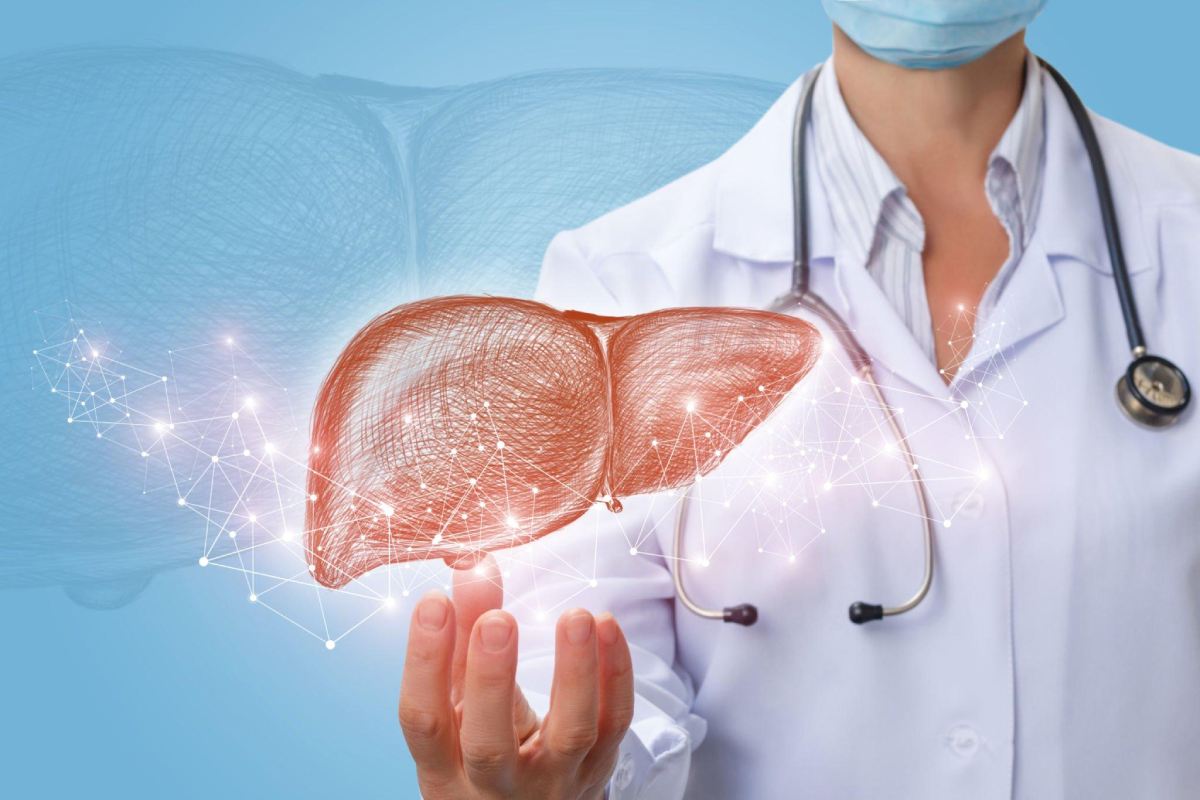Easy Steps to Improve Liver Health – The liver is a vital organ that serves an important function in the body. It is recommended that you do all possible to protect your liver because it is an essential organ that performs various vital functions. Even though the liver is responsible for much of its maintenance, these liver health recommendations can help keep it in good shape.
As a result, you must be aware of all the necessary liver health tips. The liver, found in the upper right abdominal region, digests lipids, proteins, and carbs. It also regulates the creation of numerous lipids and proteins necessary for the body to function. Because of this, you must consider your liver health in all the things you do.
Liver disease and metabolic problems may be the outcome of a malfunctioning liver. Diabetes type 2 is the most common contributor to liver damage. While it could be impossible to control all of the risk factors, there are liver health tips that can help. Are you ready to learn about liver health tips and advice that could optimize your lifestyle?
We’ve got you covered! In this article, you’ll learn about:
- Enhancing your liver health in 8 easy steps
- Learning how to optimize your liver health daily
- Uncovering the secret to having a good liver health
- How to promote a healthy lifestyle for your liver health
Why must you consider your Liver Health?
You must properly care for your liver because it is responsible for over 500 of the body’s most crucial activities. The liver’s primary activities include blood processing and metabolism and the creation of bile, which is ultimately used to remove waste items from the body.
Consider the liver a filter that cleans the blood and eliminates toxins from the body so it can function correctly. It cleanses the bloodstream of bacteria and toxins, enhancing the body’s ability to fight off infections. This is performed by increasing the production of immunological components (proteins and cells) responsible for removing bacteria from the bloodstream.
It is a vital feature of the body’s natural detoxification mechanism. Furthermore, the liver is in charge of producing cholesterol and proteins, both of which help deliver lipids to various bodily areas. Moreover, the liver is in charge of converting excess sugar (glucose) into glycogen which stores glucose. As a result, your liver is an essential organ in the digestion process.
How can you improve your Liver Health?
#1: Always eat Fruits and Vegetables
This indicates that you ought to consume fruits and vegetables of every color of the rainbow, as doing so will assist you in ensuring that you obtain an adequate amount of all the essential nutrients and fiber. Choose whole-grain versions of rice, bread, and cereal instead of refined carbohydrates like doughnuts and white bread to add more fiber and nutrients to your diet.
Moderate consumption of healthy foods such as meat, dairy products, and fat is recommended. But don’t go crazy. Instead, aim to get your “good” fats (monounsaturated and polyunsaturated) from seeds, nuts, seafood, and vegetable oils. These are the best sources of these types of fats.
#2: Maintain a Healthy Body Weight
This requires maintaining a body mass index (BMI) range of 18 to 25. You can find tools on the internet that will assist you in determining your number, and you can use those resources.
Participating in consistent physical activity and eating a diet rich in nutrients is the best way to help you keep a healthy weight and reduce your risk of developing the nonalcoholic fatty liver disease (NAFLD).
This is also the most effective strategy for lowering your risk of developing the condition. Your primary care practitioner should be able to direct you in creating a weight loss goal that would promote your entire body’s long-term health. They may suggest incorporating medications such as Semaglutide Nashville, which has recently been approved by the FDA for weight management. Semaglutide works by mimicking the effects of a hormone that regulates appetite and blood sugar, helping to reduce food cravings and promote feelings of fullness. When used in conjunction with a healthy diet and exercise, Semaglutide can be an effective tool for managing weight and improving overall health.
#3: Exercise Regularly
It can assist in the maintenance of a healthy body mass index, which in turn has the potential to protect against nonalcoholic fatty liver disease. Nevertheless, there is a good chance that exercising will be beneficial even if there is no change in BMI levels. Why? Triglycerides, a type of fat detected in the blood, can be burned off as a result of this since it improves the way your insulin works.
#4: Food Supplements are Optional
Nutrients that cannot be gained from diet alone are provided through food supplements. Vitamins, minerals, amino acids, fatty acids, and other compounds can be taken as pills, tablets, capsules, or liquids. If you want to buy an effective nutritional supplement, AlphaCleanse is a fantastic place to start.
It comprises organic herbs that help with liver detoxification and the immune, digestive, and weight control systems. This is one of the most effective natural body-cleansing vitamins available.
It has 12 ingredients that support and cleanse the liver and some of nature’s most potent herbs for improving liver function and maintaining stable liver enzyme levels. Additionally, it improves digestion, reduces bloating, and resets the metabolism, enabling long-term weight loss. This is a fantastic way to keep your liver healthy.
#5: Drink Moderately
If you consume alcohol, your liver will temporarily stop performing its other activities to focus on breaking down the alcohol and flushing it out of your system. Excessive drinking, which is defined as more than one drink, puts a significant strain on the organ and has the potential to cause harm to it.
Women should not drink more than one drink per day, and men should not consume more than two drinks per day. In the long run, this frequently leads to fatty liver, an early sign of several diseases. In addition, it can stimulate the expansion of pathogenic bacteria in your intestines, which may then go to your liver, where they may cause significant damage.
#6: Keep Away from Toxins
Insecticides, spray cans, cleaning products, and other commonplace objects in the home may contain these substances. The cells in your liver can become damaged if you come into contact with them, absorb them, or breathe excessively.
When you use the restroom where there are a lot of toxic substances, it is strongly suggested that you do so while wearing a face mask, goggles, and any other protective gear that you may have and with the windows open.
#7: Regularly take your medication
Even though acetaminophen is the prescription drug that is most likely to damage your liver, other medications, particularly those that are not used in the manner that is recommended, also have the potential to damage your liver. It’s also possible that your genes, the additional prescriptions or supplements you take, and the food you eat all play a role.
If, after starting a new medicine, you have symptoms such as exhaustion, nausea, or itching, or if you see yellowing of the skin or eyes, you should make an appointment with your primary care physician (jaundice). Some examples of such drugs include statins, prescribed for treating excessive cholesterol, and certain antibiotics are amoxicillin, clindamycin, and erythromycin.
#8: Practice Safe Intimacy
Both you and your significant other have a responsibility to protect yourselves from infectious diseases that can be transmitted from one person to another through forms of intimate contact. When left untreated, a number of these conditions can eventually lead to liver damage.
One of these, known as hepatitis C, is capable of directly infecting the organ and causing considerable harm over the course of time. The vast majority of people don’t become aware that they have it until a number of years have passed, by which time a considerable amount of damage has already been done. Your doctor will do tests to identify whether or not you have the condition.
Final Word:
Your liver health is always an important thing to consider when it comes to taking care of your body. Show yourself some self-love, and always choose to optimize your liver health.
Which of the ways to enhance your liver health is the most optional for you?
Share with us your answers in the comments down below!
About the Author:
Rosina Warner is a regular contributor to the EdenBoost blog. She has been writing for years on a variety of topics including but not limited to weight loss, nutrition, health and fitness. She enjoys reading books that contain poems, as well as stories that are either fictional or historical while she is not writing.


